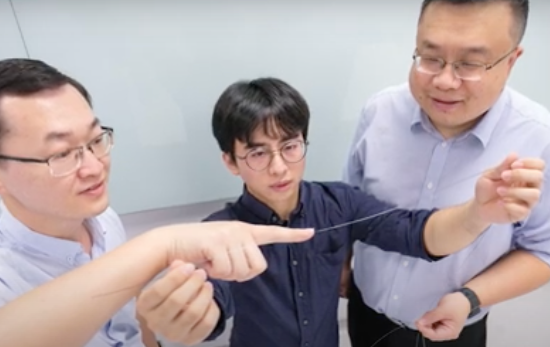
Scientists from Nanyang Technological University (NTU), Singapore have developed ultra-thin semiconductor fibres that can be woven into fabrics, turning them into smart wearable electronics.
They have developed a mechanical design and successfully fabricated hair-thin, defect-free fibres spanning 100 metres, which indicates its market scalability. Importantly the new fibres can be woven into fabrics using existing methods.
To develop their defect-free fibres, the NTU-led team selected pairs of common semiconductor material and synthetic material, a silicon semiconductor core with a silica glass tube and a germanium core with an aluminosilicate glass tube.
To demonstrate the feasibility of use in real-life applications, the team built smart wearable electronics using their newly created semiconductor fibres, such as a smartwatch.
A smartwatch with a wrist band integrated with the fibres functioned as a flexible and conformal sensor to measure heart rate, as opposed to traditional designs where a rigid sensor is installed on the body of the smartwatch, which may not be reliable in circumstances when users are very active, and the sensor is not in contact with the skin. Moreover, the fibres replaced bulky sensors in the body of the smartwatch, saving space and freeing up design opportunities for slimmer watch designs.




